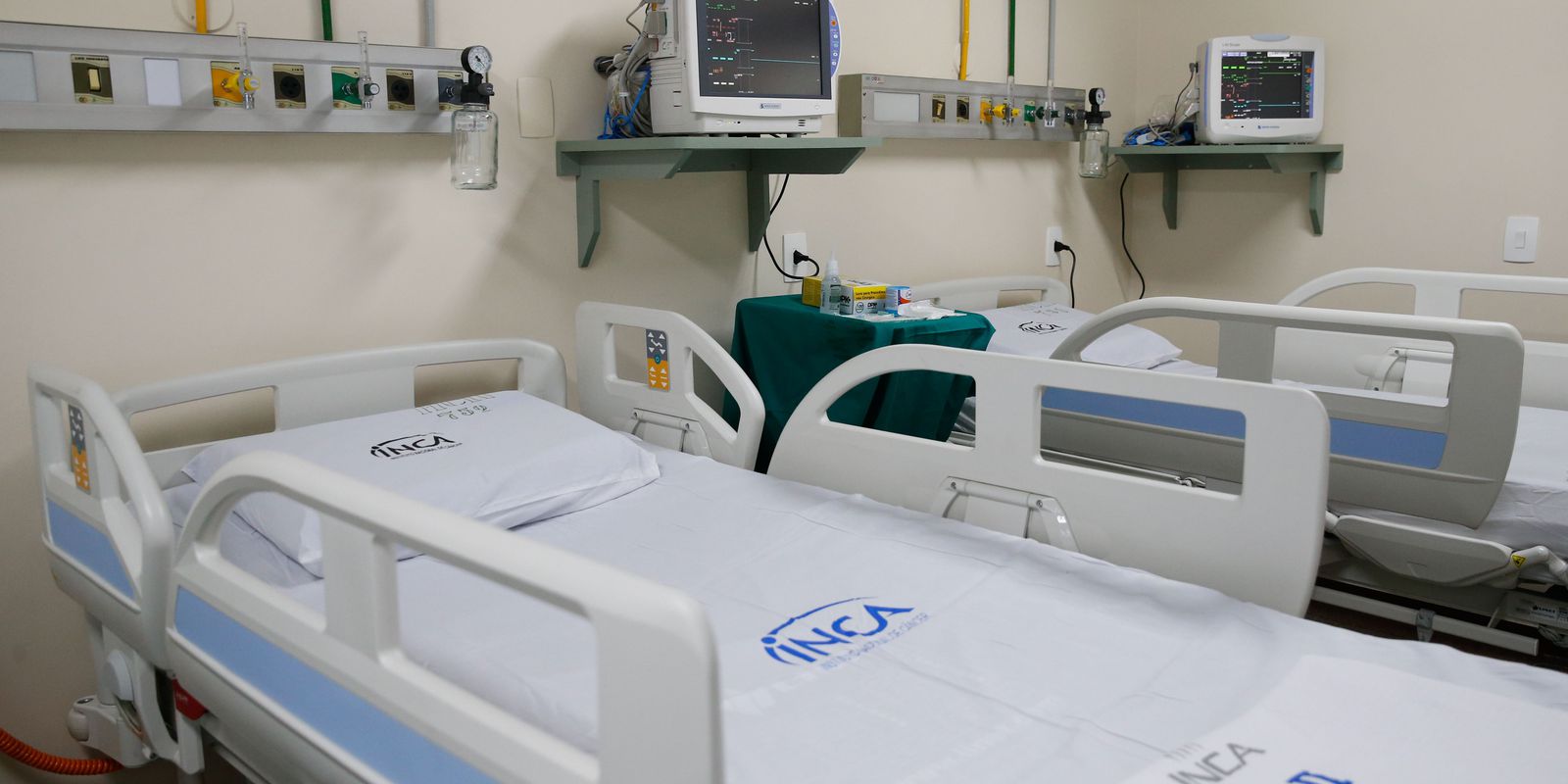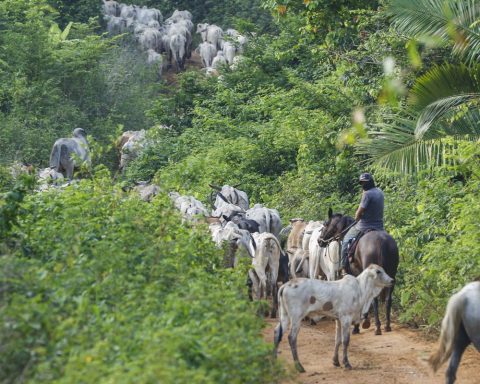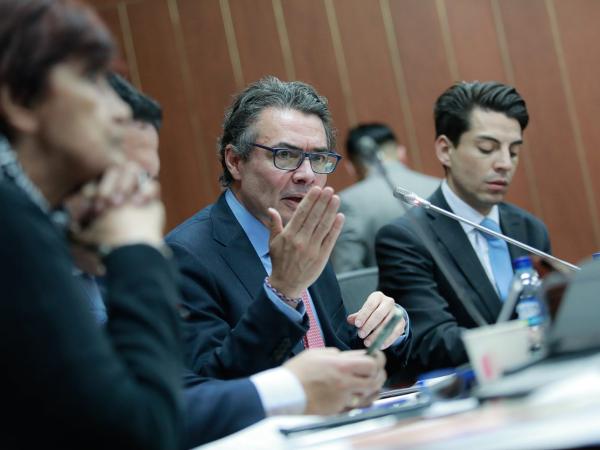Premature cancer mortality in Brazil is expected to decrease in the period 2026/2030. The projection was made by researchers from the National Cancer Institute (Inca), in comparison to the premature mortality observed between 2011 and 2015, for the age group of 30 to 69 years old, with data from the National System of Information on Mortality (SIM) . Despite this, the predicted reduction will still be far from Target 3.4 of the United Nations (UN) Sustainable Development Goals (SDGs), which established, by 2030, a one-third reduction in the risk of premature death for chronic noncommunicable diseases (NCDs) , which include the various types of cancer.
Researcher Marianna Cancela, from the Inca Prevention and Surveillance Coordination (Conprev), informed the Brazil Agency that, for certain types of cancer, there is a prediction of an increase and, for others, a decrease. For 2026/2030, the forecast is for a national reduction of 12% in the age-standardized mortality rate due to premature cancer among men and a smaller drop, of 4.6%, among women. In regional terms, there is a variation from 2.8% among women, in the North Region, to 14.7% among men, in the South Region. The predictions were calculated using the software Nordpred, developed by the Norwegian Cancer Registry, is widely used to make long-term predictions of cancer incidence and mortality.
Marianna explained that, when talking about the number of cases, all types of cancer will increase in the period between 2026 and 2030 for two reasons. The first involves the increase in population and changes in the population structure, with the aging of a good portion of Brazilians, for whom most NCDs are more prevalent; the second reason is the increase in risk factors.
According to the article by Inca Can the Sustainable Development Goals for Cancer Be Achieved in Brazil?published in the scientific journal Frontiers in Oncology As of January 10th, CNCDs accounted for 15 million premature deaths in the 30-69 age group worldwide in 2016, with more than 85% of these deaths occurring in low- and middle-income countries. Cancer was responsible for 9 million deaths annually, second only to cardiovascular diseases (17.9 million deaths/year), considered the main cause of death from CNCD in the world. The perspective is that NCDs will continue to increase in low- and middle-income countries, contributing to economic losses associated with premature deaths of around US$7 trillion in these countries over the next 15 years.
Biggest increase
According to the Inca study, bowel or colorectal cancer is the one that should show the greatest increase in the risk of premature death for men and women by 2030, in Brazil, of around 10%. By regions, the North of the country should show the highest increase (52%) among men, followed by the Northeast (37%), Midwest (19.3%), South (13.2%) and Southeast (4. 5%). According to Marianna Cancela, the higher incidence “is a consequence of the so-called westernization, of life habits, greater obesity, sedentary lifestyle, the issue of food, with a preference for consuming industrialized products”. In regions where the incidence is currently lowest, a greater increase is predicted. Among women, the Northeast leads, with a projected expansion of 38%, followed by the Southeast (7.3%), North (2.8%), Midwest (2.4%) and South (0.8% ).
Bowel cancer is the second most common type of cancer in the country, behind prostate cancer among men and breast cancer among women. Inca estimates that, in each year of the 2023/2025 triennium, around 46,000 new cases of colorectal cancer will be diagnosed, corresponding to around 10% of all tumors diagnosed in Brazil, with the exception of non-melanoma skin cancer.
Other types of cancer
Marianna Cancela informed that lung cancer among men was the one that presented the greatest drop projection, close to 30%, showing the effectiveness of all anti-smoking policies implemented since the 1980s. 1.1% increased probability of premature death.
In cervical cancer, a decrease in premature mortality was observed in all regions. “Except that, even with this drop, the premature mortality rate in the North Region continues to be extremely high, in comparison to other places and the national average”. In Northern Brazil, premature mortality was the highest in the country between 2011/2015: 28 deaths per 100,000 people, against a national average of 16 deaths per 100,000.
The projection for 2026/2030 in the North Region is 24 deaths per 100,000, while the Brazilian average is 11 deaths per 100,000. “Even with this drop, it continues to be very high”, evaluates Marianna. The researcher pointed out that, in addition to being a complicated region in terms of logistics, there is a lack of care in the north of Brazil. “For certain types of cancer, we see exactly that, even with a drop, the number remains extremely high.”
With regard to breast cancer, projections for up to 2030 are for a decline in the Southeast, some stability in Brazil and the South and an increase in the North, Northeast and Midwest. Marianna clarified that, in this type of cancer, there are hormonal factors that make it difficult to avoid the disease. The decrease in the number of children per woman and the fact that a woman has not had children increase the risk of breast cancer. “Breastfeeding is a protective factor.” As with colorectal cancer, the risk of breast cancer is increased by diet, physical inactivity and alcohol consumption. Another factor that increases the risk is the fact that women get pregnant at an older age, postponing motherhood. “All of this ultimately adds up to increased risk.”
Regarding stomach cancer, despite a projected drop, premature mortality remains high in the North Region. It is a cancer of infectious origin, which affects more men than women. “We have a mixture of cancer from developing countries with cancer from developed countries that results in this double burden of disease”. Between 2011/2015, premature mortality from stomach cancer in Brazil was 20 deaths per 100,000 people. In the North, there were 21 deaths per 100,000, in the Southeast, 23; and in the South, 24. “But the fall [projetada] in other regions it was much more accentuated”. The North Region is expected to drop by 2030 to 19 deaths per 100,000 inhabitants; Southeast and South, for 13 cases each, and Brazil, for 12. That is, the drop is more pronounced in the richest regions of the country, found the study.
Public policy
In 2019, cancer accounted for 232,040 deaths in Brazil, at all ages. In the range of 30 to 69 years, there were 121,264 deaths. “In general, we have seen a slight drop”, said the researcher. Between 2011/2015, there were 145.8 cases per 100,000 among men and 118.3 cases per 100,000 among women. For 2026/2030, the projection is 127.1 deaths per 100,000 among men (a 14.8% decrease), and 113 cases among women, per 100,000 (-4.7%). This was observed in all regions, except the North, where a slight increase is expected (1.3% in men and 3.5% in women). Marianna reiterated that, even with this drop, there will be an increase in cases because it ends up accompanying the aging population.
The Inca article concludes that there is a need for public policies, especially for cancer prevention, in a multisectoral way. “There has to be more effective access to all phases of cancer control: prevention, early diagnosis, treatment, in order to ensure that there is a reduction”, highlighted the researcher.
She pondered that, as with lung cancer, efforts have to be continuous and long-term, because cancer is a disease that has a long latency, that is, it needs years of exposure to develop. Therefore, it needs prevention policies with the population for years, so that there can be a drop in numbers.
To prevent the appearance of cancer, experts recommend not smoking, not drinking, practicing physical activity, avoiding a sedentary lifestyle, giving preference to unprocessed foods. People should always pay attention to the signs that the body gives and not hesitate to seek medical attention, recommended the researcher from Inca.

















